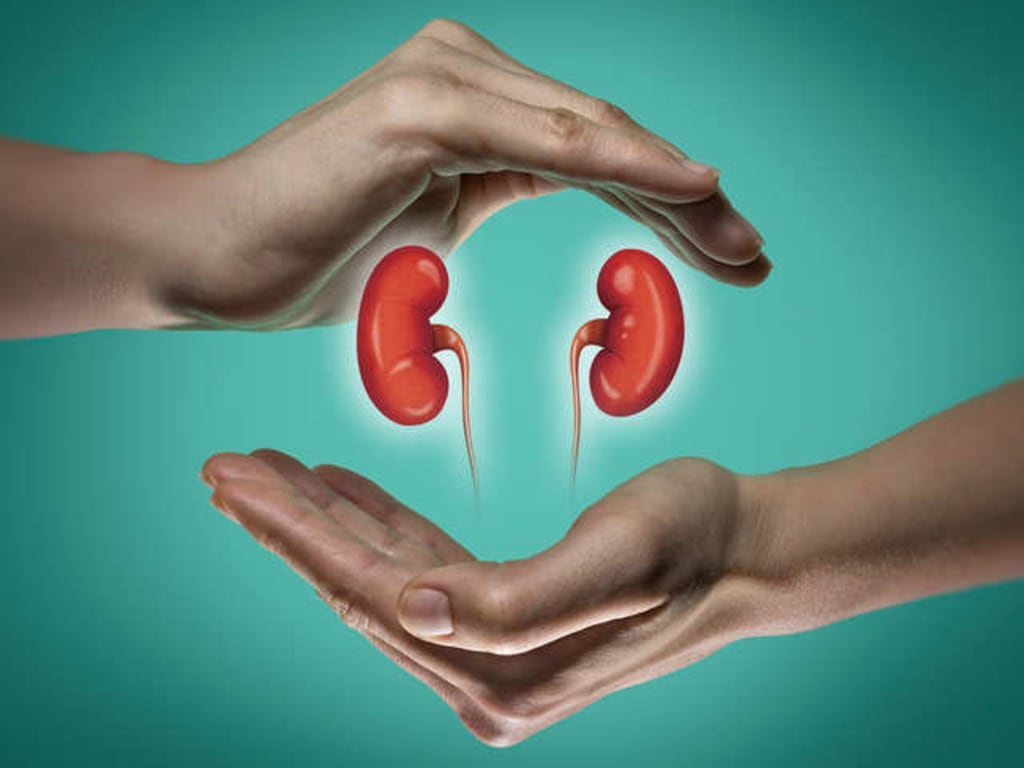What Are The 8 Golden Rules For Preventing Chronic Kidney Disease?
Stem Cell Therapy For CKD

Chronic renal failure was the previous name for chronic kidney disease, however chronic kidney disease is a preferable term because failure indicates that the kidneys have completely stopped working.
This is not the case in most cases of chronic renal disease. Most persons with chronic renal disease have only a modest or moderate decline in kidney function, which rarely causes symptoms, and their kidneys have not 'failed.'
Acute kidney damage (AKI) occurs when the kidneys' function is disrupted suddenly, over hours or days. If you have a major blood infection that affects the kidneys, for example, your kidneys may suffer from acute renal damage.
What steps you can take to help your kidneys?
Kidney illnesses are silent killers that have a significant impact on one's quality of life. There are a few things you may do to lower your chances of getting kidney disease.
Maintain a healthy lifestyle by staying active
This can help in maintaining a healthy body weight, lowering blood pressure, and decreasing the risk of Chronic Kidney Disease.
The concept "On the move for kidney health" is a global collective march comprising the general population, celebrities, and professionals walking, running, and cycling across a public space.
Maintain a balanced diet
This can aid in maintaining a healthy body weight, lowering blood pressure, preventing diabetes, heart disease, and other chronic kidney disease-related problems.
Reduce the amount of salt you consume. The daily sodium intake recommendation is 5-6 grammes. This includes the salt you've already consumed. (about a teaspoon)
To cut down on salt, restrict your intake of processed and restaurant foods and avoid adding salt to your food. If you create your food from scratch with fresh ingredients, it will be easier to keep track of your salt intake.
Keep an eye on your blood sugar levels and keep them under control
About half of diabetics are unaware that they have the disease. As a result, you should check your blood sugar level as part of your regular physical examination.
This is especially crucial for persons reaching or past middle age. Kidney disease affects around half of all diabetics, but it can be avoided or restricted if the diabetes is adequately managed. Blood and urine tests should be done on a regular basis to monitor your kidney function.
Keep an eye on your blood pressure and keep it under control
Approximately half of people with high blood pressure are unaware of their condition. As a result, you should monitor your blood pressure as part of your regular physical examination.
This is especially crucial for persons reaching or past middle age. Your kidneys might be harmed by high blood pressure.
This is especially true when other variables such as diabetes, high cholesterol, and Cardio-Vascular Diseases are present. With appropriate blood pressure control, the danger can be lowered.
The normal blood pressure for an adult is 120/80. Hypertension is diagnosed when the systolic blood pressure readings on two different days are both 140 mmHg and/or the diastolic blood pressure readings are both 90 mmHg (WHO).
If your blood pressure is consistently high (especially if you are a young person), you should talk to your doctor about the dangers, the need for lifestyle changes, and pharmaceutical treatment.
Make sure you get enough water
Exercise, environment, health problems, pregnancy, and nursing all play a role in determining the appropriate fluid consumption for each individual.
For a healthy person living in a comfortable environment, this equates to 8 cups, or around 2 litres (quarts) every day.
When the weather is bad, this needs to be modified. If you have renal, heart, or liver illness, you may need to alter your fluid consumption. Consult your doctor about how much fluid you should drink based on your situation.
Quit Smoking
The passage of blood to the kidneys is slowed by smoking. When the kidneys receive less blood, their capacity to operate normally is harmed. In addition, smoking raises the risk of kidney cancer by around 50%.
Don't take anti-inflammatory/painkiller drugs on a regular basis
If taken on a frequent basis, non-steroidal anti-inflammatory medicines (NSAIDS) and pain relievers (e.g., ibuprofen) can affect the kidneys.
Taking just a few dosages can injure your kidneys if you have renal disease or impaired kidney function. If you're unclear, consult your doctor or pharmacist.
If you have one or more of the 'high risk' characteristics, have your kidney function tested
- You're diabetic
- You have high blood pressure
- You are overweight
- You have a history of renal disease in your family
How It is alternatively treated with stem cell therapy?
Umbilical Cord Stem Cells are used in stem cell therapy for Chronic Kidney Disease to assist arrest the progression of the disease by boosting the immune system and repairing the damaged tissue, kidney structure, and body functions lost as a result of the disease.
In addition, it can also help in the reduction of inflammation and symptoms, as well as the prevention of additional CKD-related disorders and the treatment of autoimmune diseases.
Contact Shifa Rejuvenation Clinic for the best stem cell treatment if you have CKD or any other type of chronic condition. Send an email to [email protected] to schedule a free consultation with our qualified stem cell therapist.
About the Creator
Health Blogs
Digital Healthcare Markter and Researcher






Comments
There are no comments for this story
Be the first to respond and start the conversation.